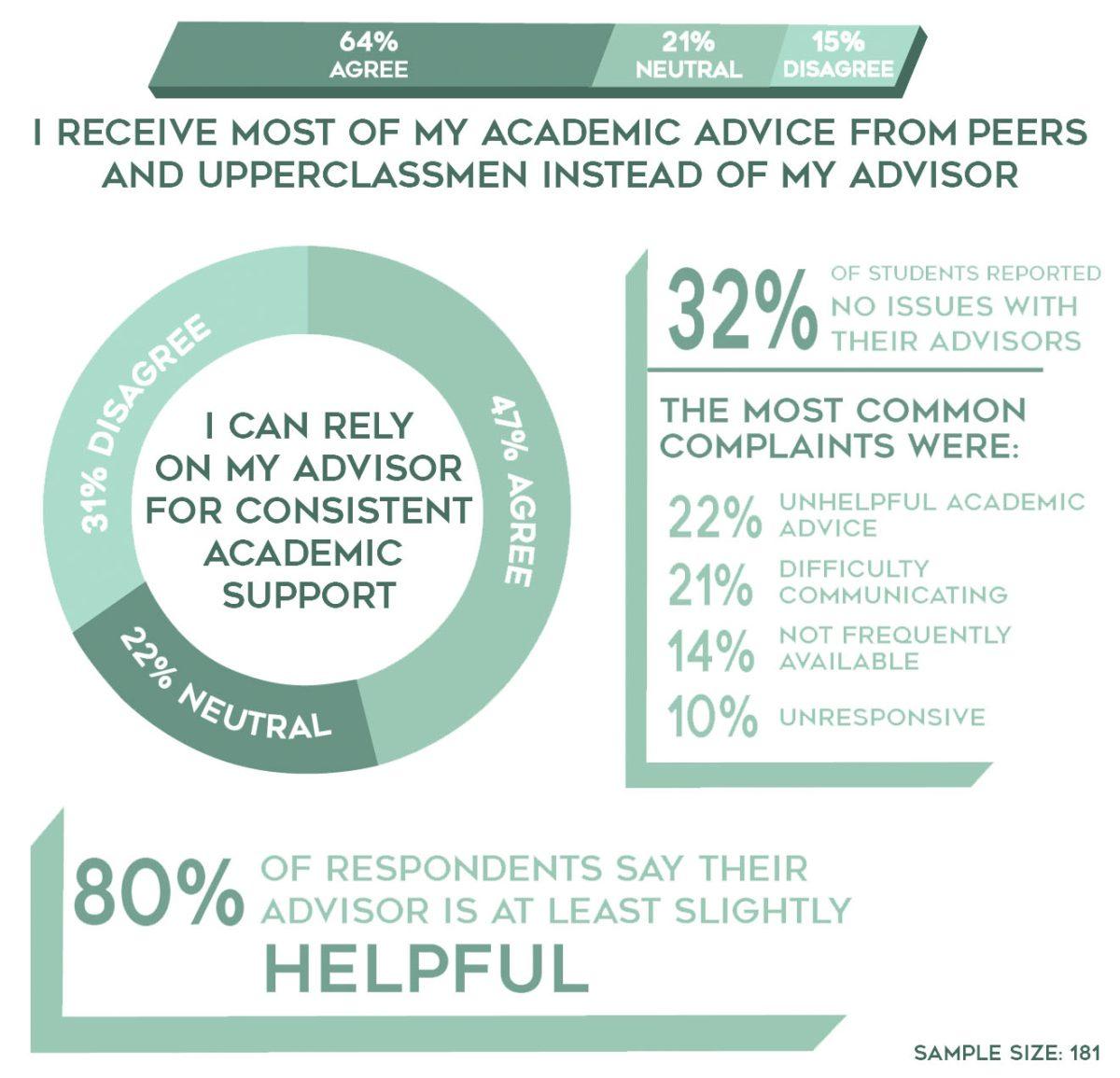Survey suggests most students across different programs have positive experiences with academic advisors.
A quick search of the UTD’s Reddit page will yield several anecdotes from students detailing their struggles in finding an academic advisor who is willing to help them. Posts such as these tend to quickly gain traction on the site, prompting other users to share their own negative experiences with academic advising. However, a recent survey conducted by The Mercury suggests that the notion among students that advisors can’t or won’t help may not be accurate — and that most students, in fact, have positive experiences with their advisors.
Just over 180 respondents — varying from freshmen to graduate students, across all UTD schools — reported whether they found their academic advisors useful or helpful and what main issues they had, if any, with their academic advising experience. Respondents also had the opportunity to write additional comments if they desired.
71 percent of respondents said they met with their advisor one to three times per year, and when asked how useful their advisor was in their overall academic career, 82 percent of respondents said extremely, very, moderately or slightly useful. In contrast, only 18 percent said not useful at all.
“ECS degree plans can be difficult to understand, and the advisors do the bare minimum to help students with any information they need or issues with their records,” one anonymous respondent said. “Actively making students aware of what resources they can use can resolve many common issues.”
Stephanie Taylor, a biomedical engineering freshman, said while she found her degree plan to be organized, her biggest issue was being unable to see her advisor in person.
“I haven’t actually met my advisor because every time I go to his office, he either isn’t available or they won’t allow us into the offices, which is really not helpful,” Taylor said. “But I have been in touch with him by email, and he gave a little bit of help, but as far as actually helping me with planning my schedule and stuff like that I’ve gotten very little responses from him.”
Taylor said despite having to wait up to week for an email response and visiting the advising office four times without getting to see her advisor, she had a better experience when allowed to see an advisor who wasn’t originally assigned to her.
“She was actually able to put me into the class I was having trouble with getting into, so she was actually really helpful,” Taylor said. “She got me in and out in ten minutes, which was really nice, because my advisor hadn’t done that too much.”
While 32 percent of respondents on the survey said they had no issues with their academic advisors, 22 percent said their main concern was unhelpful academic advice, 21 percent said difficulty communicating and 15 percent said their advisors weren’t frequently available. One JSOM student noted there seemed to be no consistency in the academic advice received.
“I would…get entirely different answers from different advising staff regarding my academic path,” the student said. “It seemed that just depending on the day and the person, the requirements I needed to meet to graduate were different. There appeared to be virtually no coordination in communication among different advising staff.”
Laura Krietemeyer, a JSOM advisor, said one of the disadvantages of having non-assigned advisors is that students with specific issues may not be able to get with the advisor they had previously, having instead to revisit the whole problem with a different advisor.
“I understand where the students are coming from, and I get that in a lot of responses from them,” Krietemeyer said. “That is due to just that the student’s needs are changing, the requirements out in the real world are changing and so therefore we have to change the degree plans (and) the requirements to accommodate what future employers are seeking.”
Krietemeyer said problems tend to arise when many students schedule appointments during certain times of year, such as November. The largest of UTD’s eight schools, JSOM has a queue system that allows for 50 appointments per day. Krietemeyer said JSOM advisors do their best to accommodate additional students if possible.
“It does become a challenge, especially during our peak registration, and I know that’s the time where our students need us the most,” Krietemeyer said. “And so, it does pose a challenge for them to get in to see an advisor.”
Academic advising officials from BBS, ECS and NSM declined to comment on the survey results. Officials from A&H, ATEC and EPPS were unable to comment prior to publication.
Taylor said while she has a friend in the same degree program who’s experienced similar advising problems, she has also heard of positive advising experiences.
“I do have a friend who’s in NSM, and she has had a wonderful experience with her advisor,” Taylor said. “She really loved her advisor, and she says he’s super helpful and is very knowledgeable and really knows what he’s doing.”
Other students also highlighted their positive experiences. One ECS student said they appreciated how their advisor goes above and beyond to help. Another A&H student said their advisors are nice, knowledgeable and reliable. Still, others offered up some suggestions on how to improve.
“The ability of the advisors to help us depends heavily on our ability to ask the right questions,” one anonymous respondent said. “If you don’t know that you should be asking a question, then you’re left hanging in the air until a problem comes up. The advising office should use a more proactive strategy.”

















